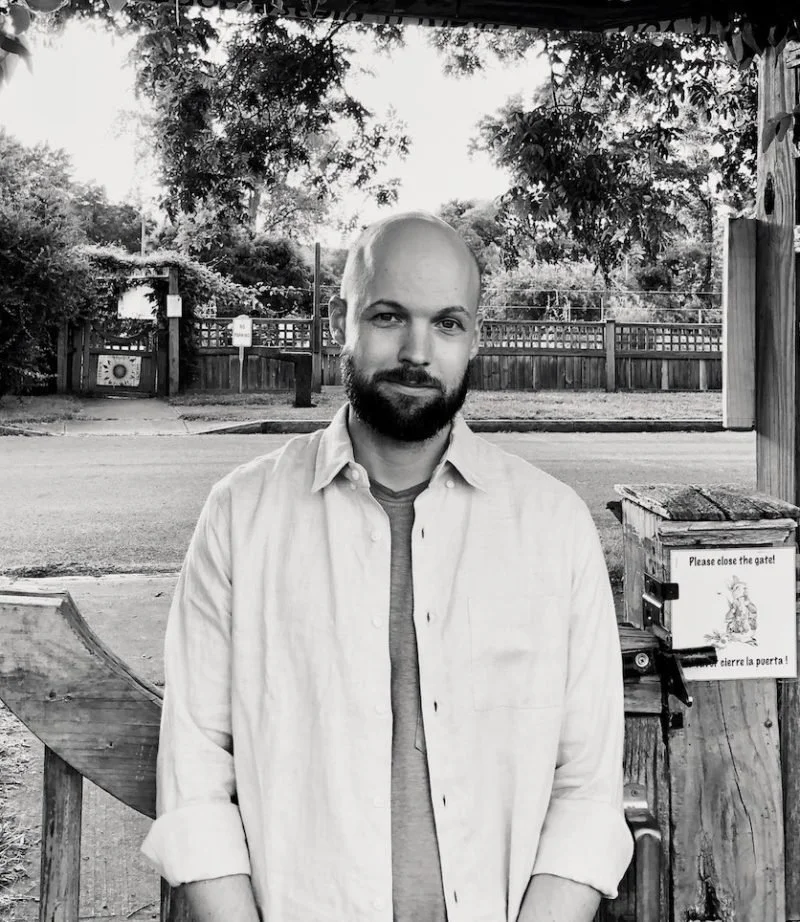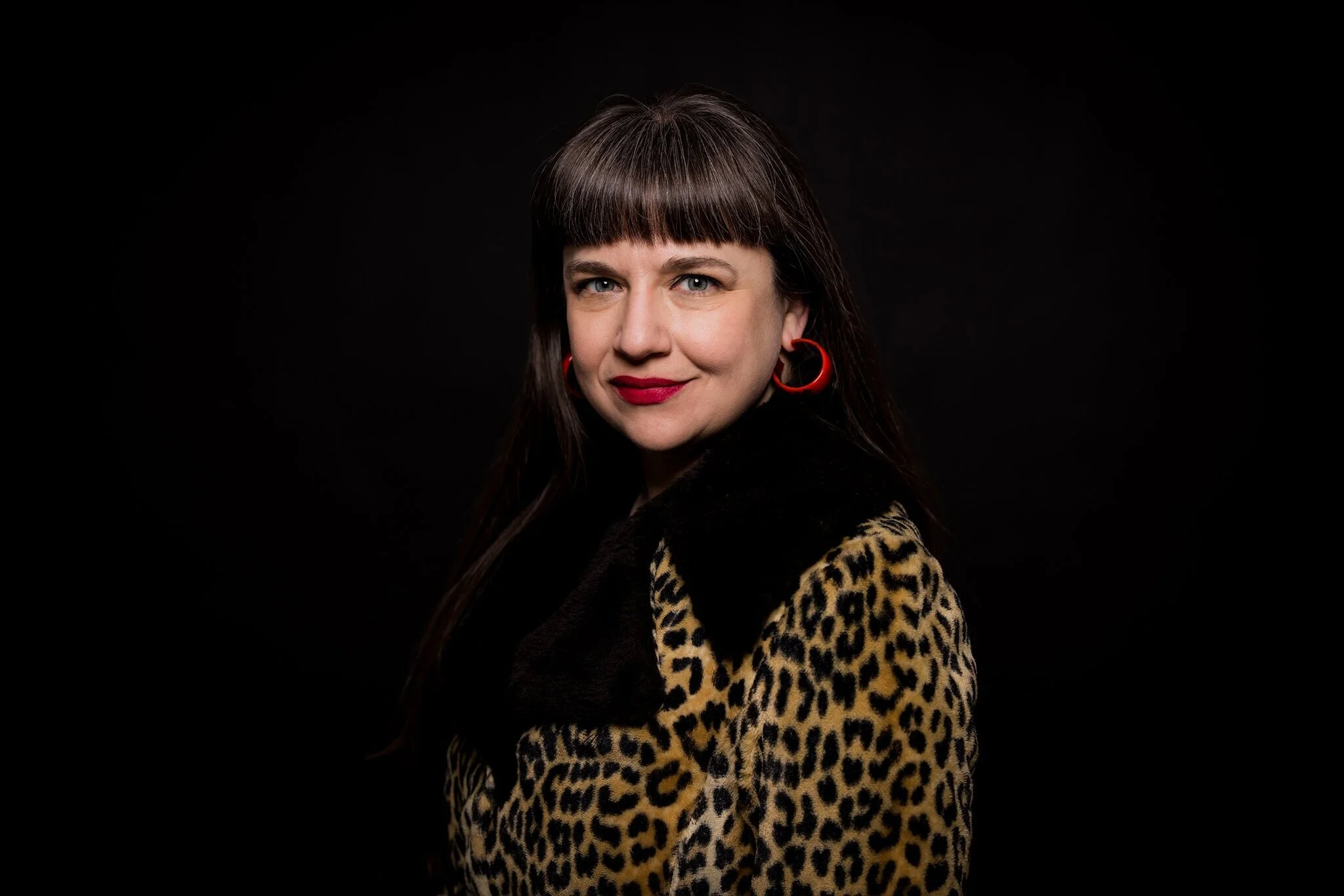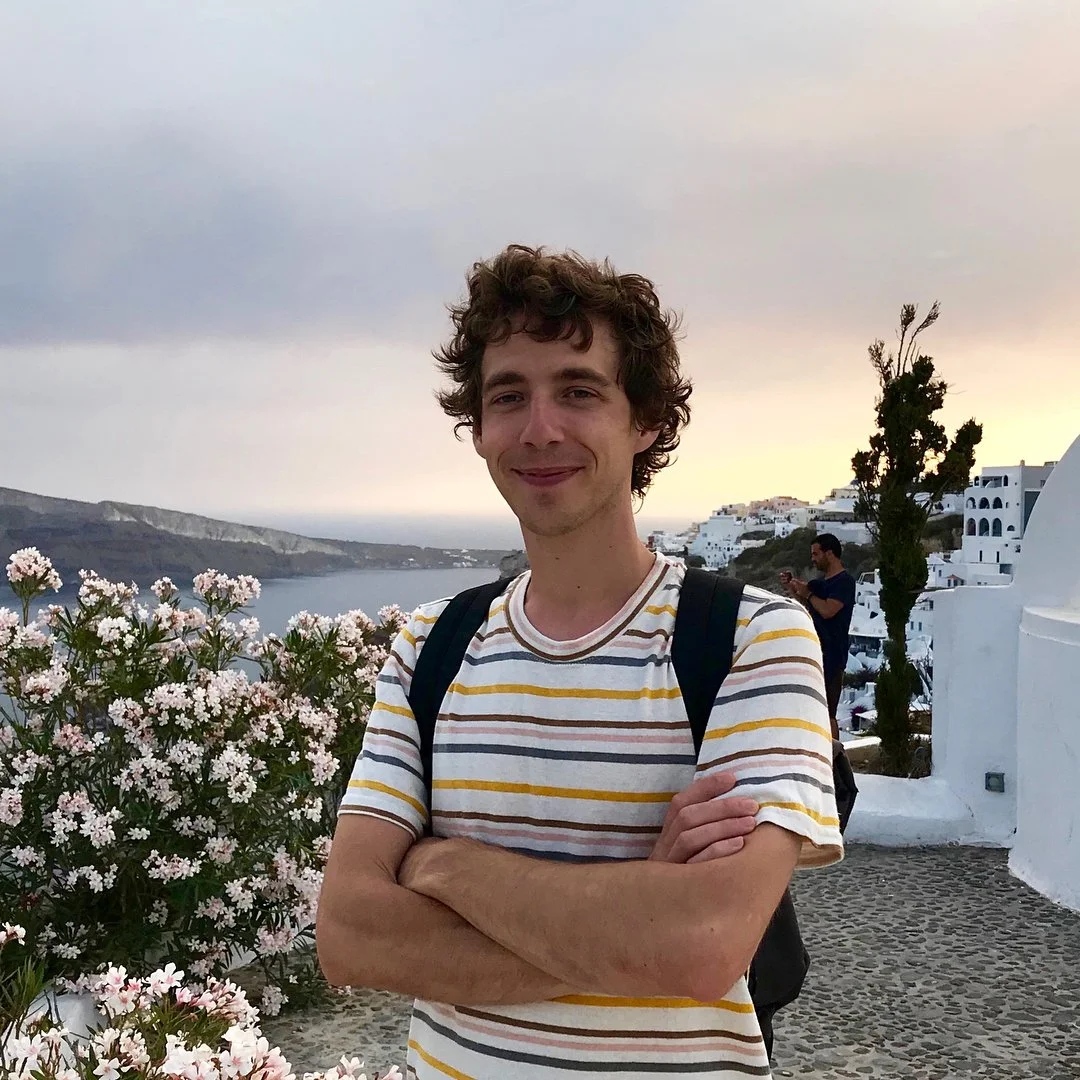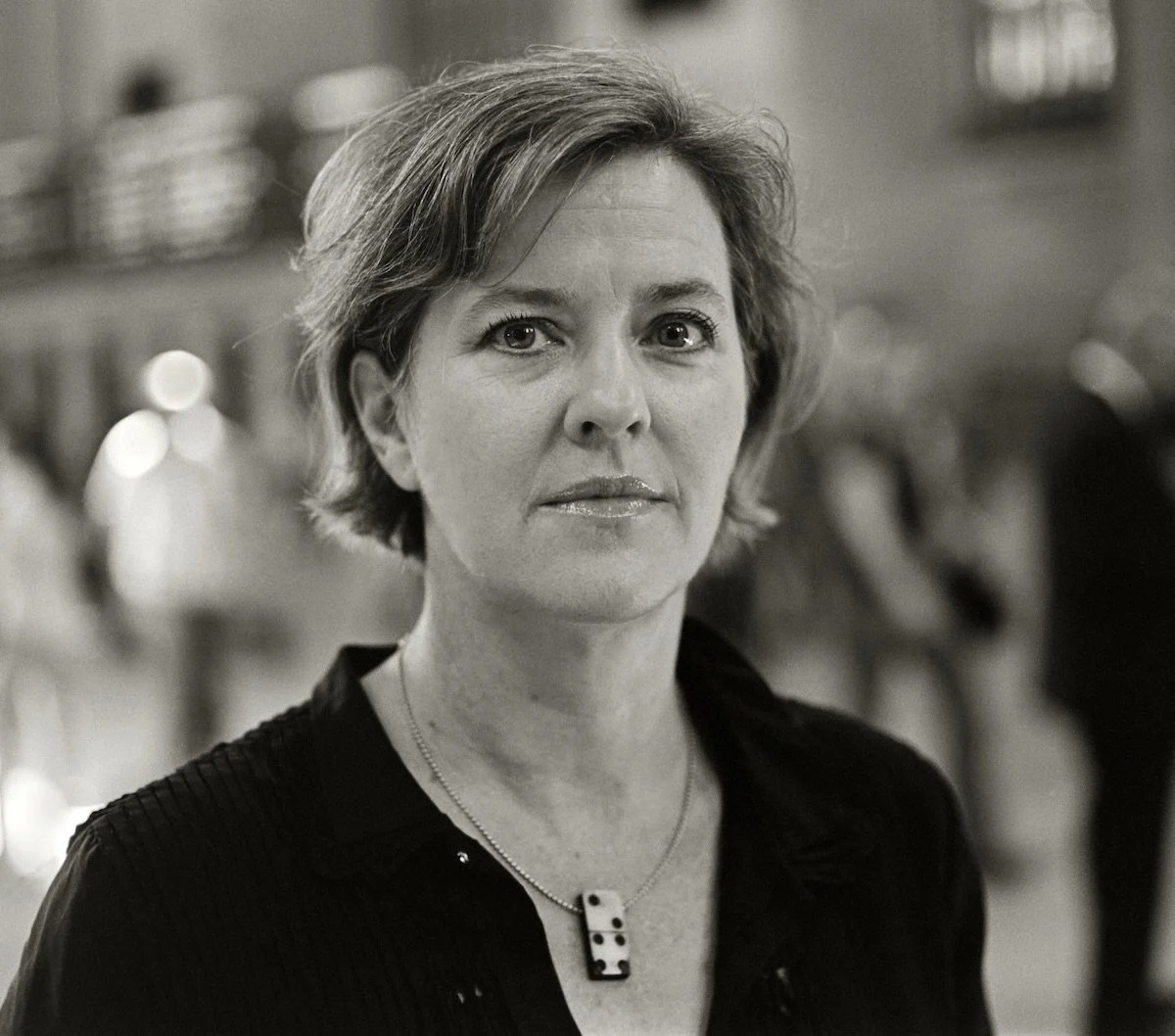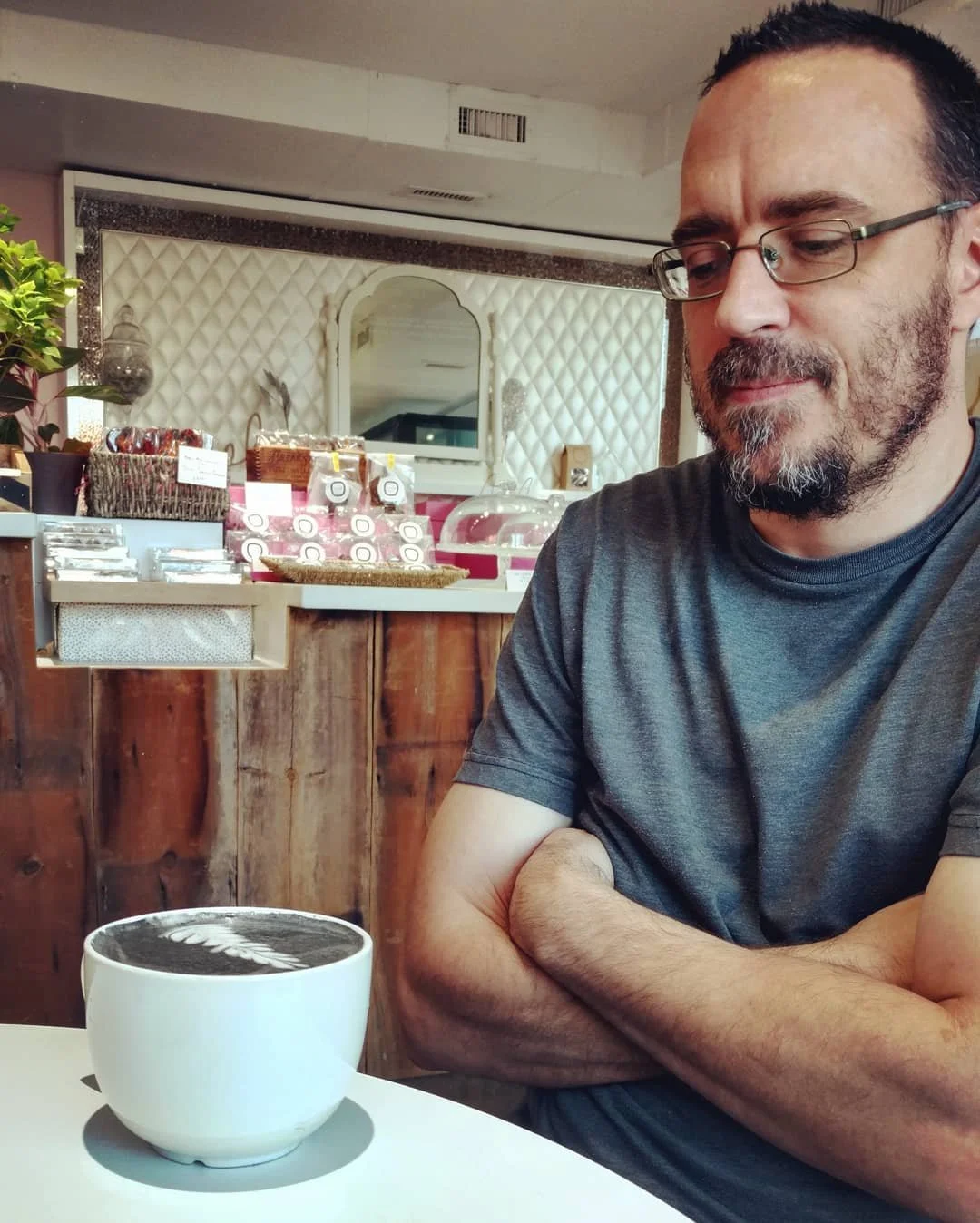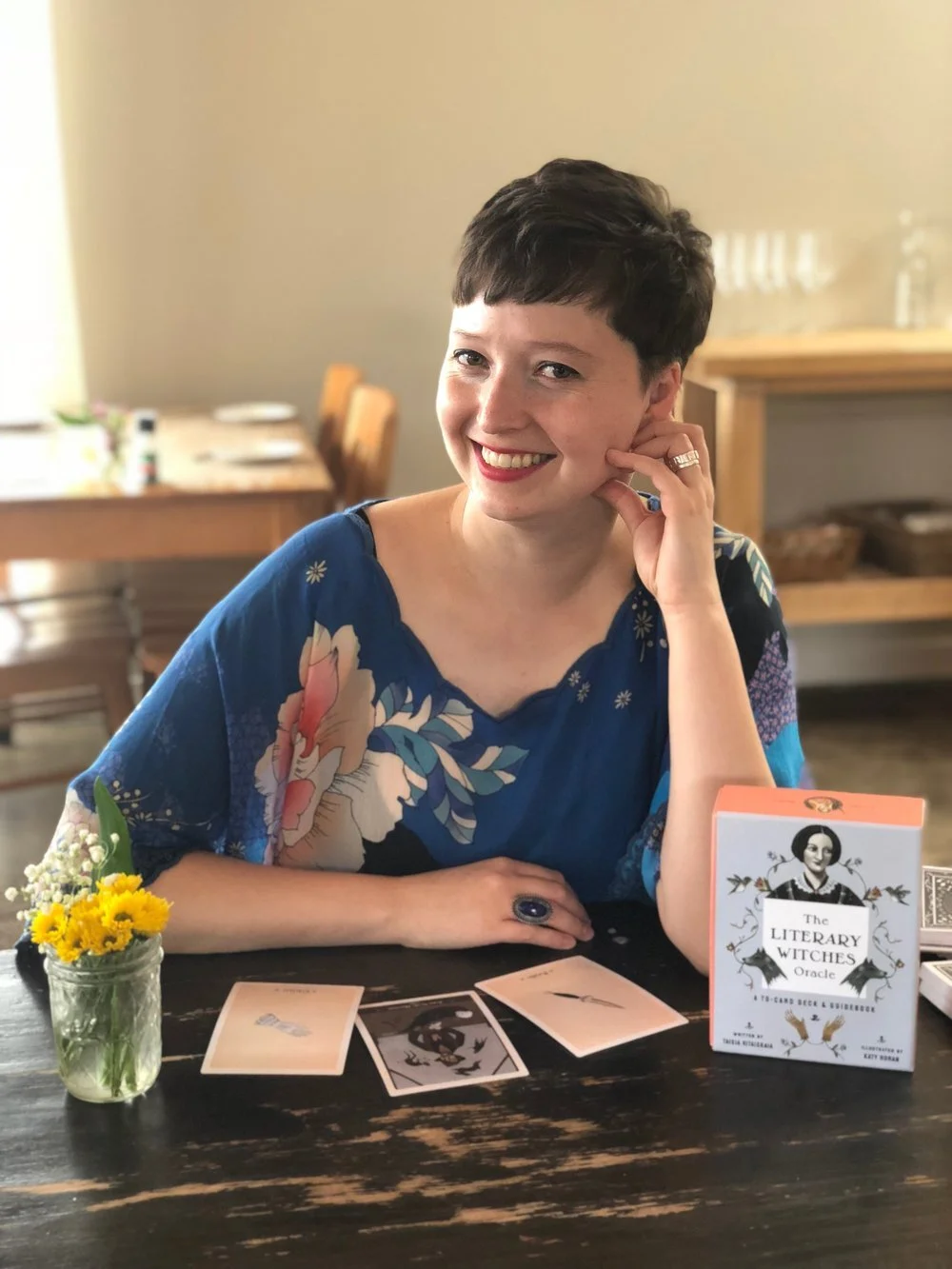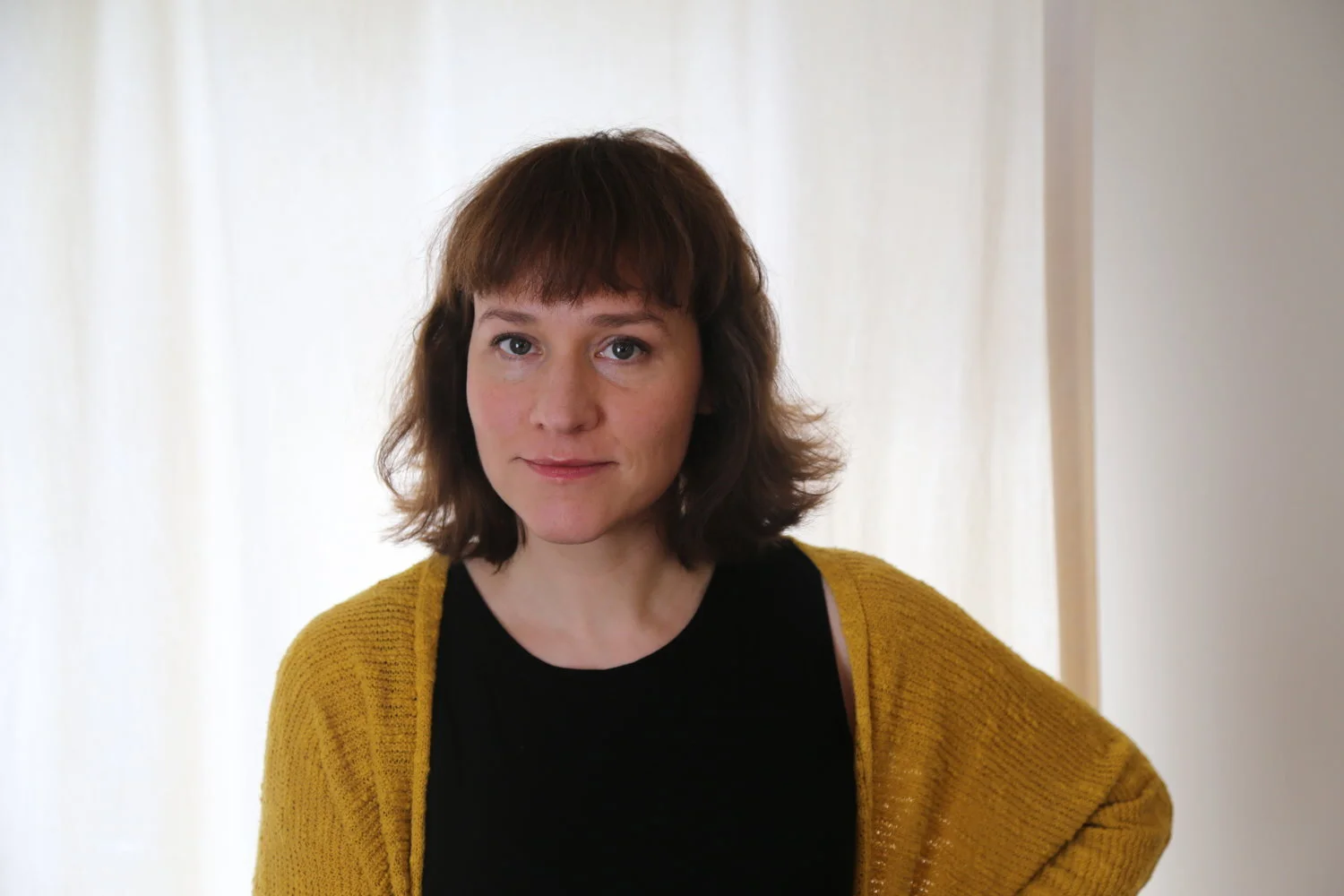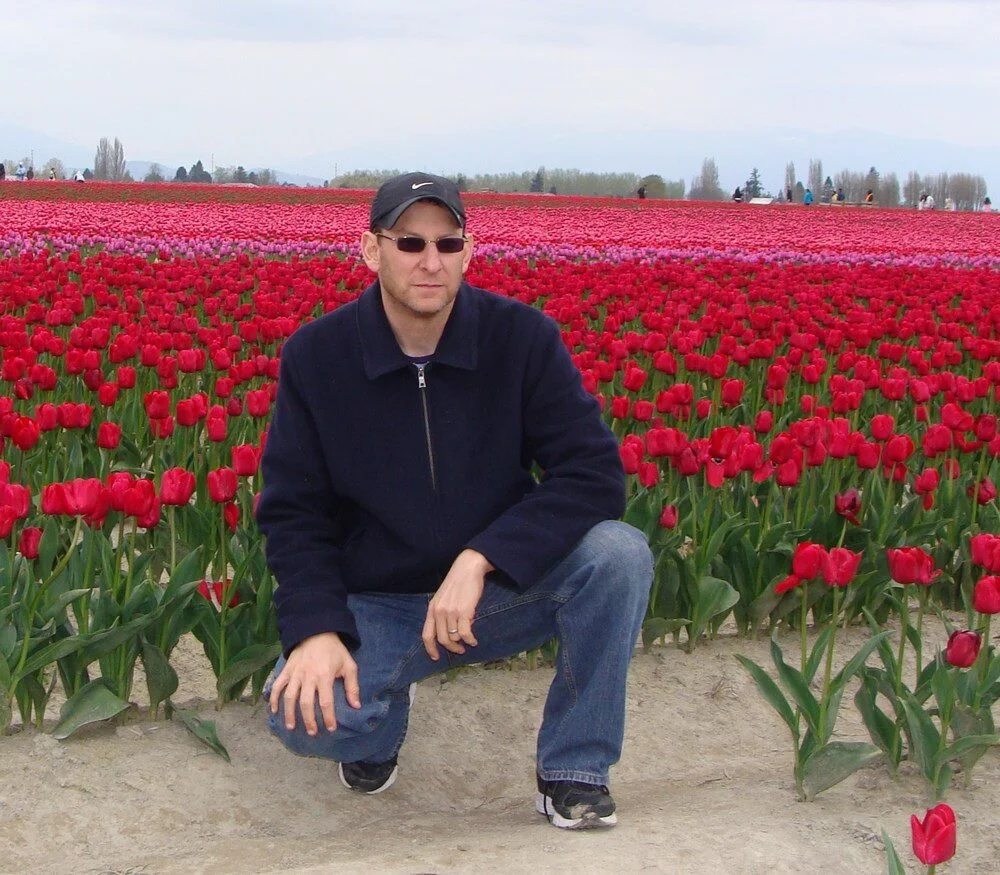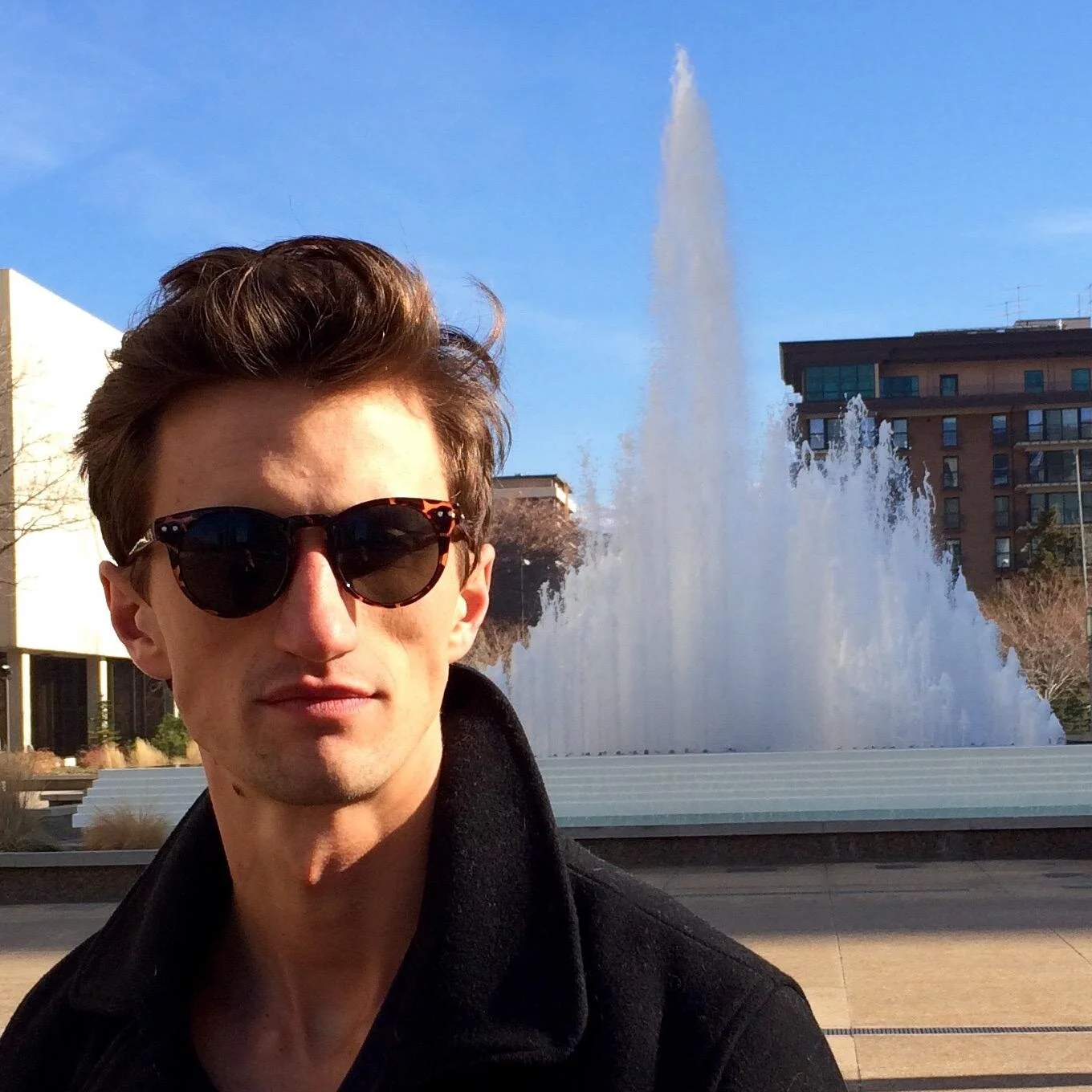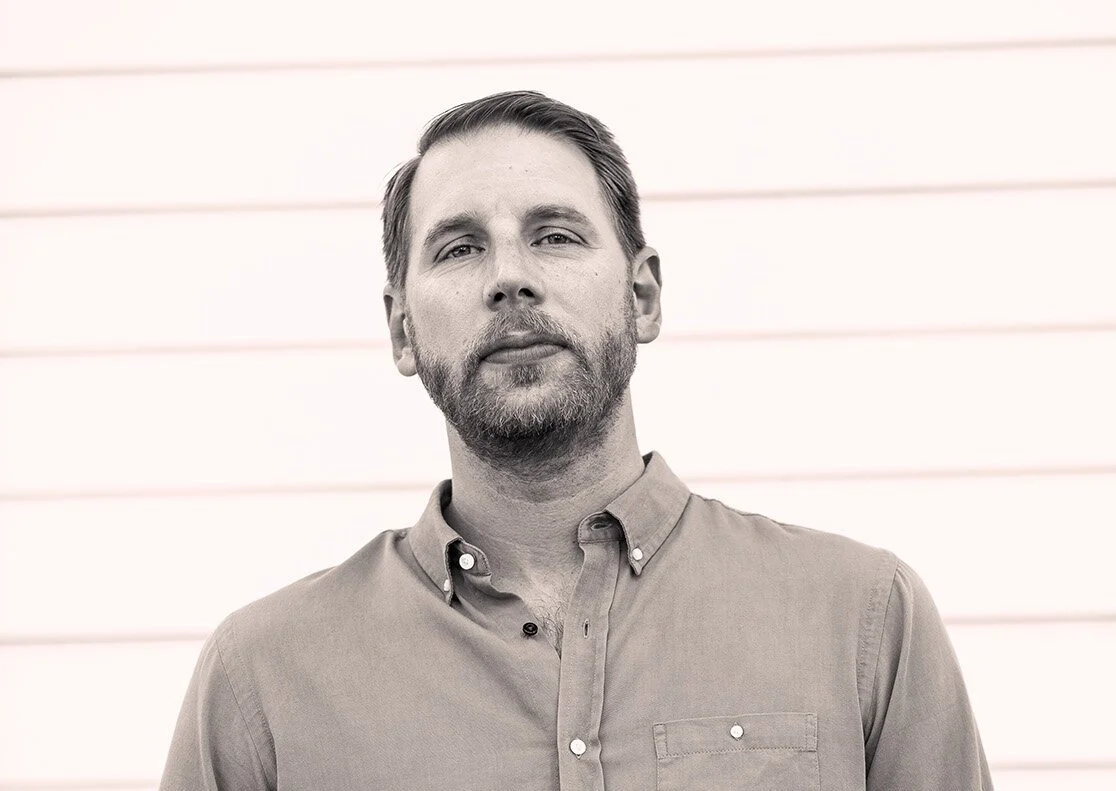Brian Barker is the author of three collections of poetry. Back in March, he released his newest collection, Vanishing Acts (SIU Press), a book of fabulist and surrealist prose poems. While each piece works as its own standalone narrative, the book fully functions as a dreamscape, a glistening and twisted depiction of a tilted reality. Vaudevillian and mesmerizing. I spoke with the poet (and editor, and collage artist) about his focus on the prose poem, patience, writing first thing in the morning, as well as one hell of a writing prompt surrounding Calvino’s Invisible Cities.
Let's begin with an icebreaker. Beginning with 1900 up until the present, which decade would you like to sit in on, if only for a long weekend, and why?
Oh, man. Tough. If only for a long weekend and I could be dropped into New York City, then the 1950s. I’m a sucker for the fashion and style of that era, and it was a great decade for baseball. I would love to have been at the famous game between the Brooklyn Dodgers and New York Giants in 1951 when Bobby Thomson hit the “Shot Heard Round the World.” (I love Don DeLillo’s depiction of this game at the beginning of Underworld.)
Congratulations on your newest book! How has 2019 been treating you?
Thanks much! It’s nice to have a new book in the world, and it’s been a good distraction from all of the terribleness in the world. Let’s be honest—2019 has sucked! Our planet is dying, our president is a narcissistic criminal, and every other week seems to bring another mass shooting. I’m hoping 2020 will be better!
You obviously varied in length with your first two collections, and sure, the lengths vary in Vanishing Acts, but for the most part, they are 100-200 words. How did you begin working in the contained and boxed world of the prose poem?
After writing The Black Ocean, where so many of the poems are long and have headlong momentum, I was looking to make a change. I wanted to see what it felt like to write a more concise poem both in length and in terms of music and rhythm. My wife loaned me a book of prose poems, The World Cut Out with Crooked Scissors, by the Danish poet Carsten René Nielsen, translated by David Keplinger. I fell in love with the imagery and quirky, surreal storytelling of these poems. The prose poem got beneath my skin, and before long I had written a few, then a dozen, and then a book. Incidentally, in the West, the prose poem began with the French symbolists who were rebelling against the strict Alexandrine form of French poetics at the time. So, there has always been something subversive about the prose poem, and in my case, too, I feel like I was using it to rebel against myself, my prior poetics.
Did you find that the prose poem brought out a more narrative voice or that a more narrative voice brought out a prose poem?
I think the narrative voice has always been in my work from early on, but the prose poem made me focus on that narrative voice more, and to think about storytelling with concision. What absolutely needs to be here? What is too much? One of the things I admire about the prose poems that have spoken to me is how easy it is to get lost in them as a reader, how you just disappear into this world. I feel like the longer a prose poem goes on, the more chance that that spell will be broken. So early on I was trying to whittle the narratives down to just the essentials.
You begin your second book, The Black Ocean, with an epic 13-page poem, and you close with an 8-page poem. Did you always see these two lengthier pieces opening and closing this collection? Were they sitting off on their own or did they arrive with the idea that 'these will be my curtains'?
The first long poem of that collection, “Dragging Canoe Vanishes from the Bear Pit into the Endless Clucking of the Gods” was the first poem I wrote after The Animal Gospels. In many ways, I saw that poem as a bridge from The Animal Gospels to The Black Ocean. In style, it was a bit closer to The Animal Gospels, but it was picking up on some of the irony and historical concerns of The Black Ocean. So, it always felt natural to start with that poem. The last poem of TBO, “A Brief Oral Account of Torture Pulled Down Out of the Wind” was one of the last poems I wrote for the collection. I don’t remember if when I first ordering the book I put it last. Sometimes when you have more than one long poem they start dictating where they want to go. They don’t want to be too close to one another. So, having them bookend the collection seemed like the right solution.
Five years between your first two books, and eight years between your most recent. Are you obsessive/meticulous with these collections? Do you find yourself taking extended breaks? Are many drafted poems scrapped and left out?
I guess I’m obsessive and meticulous, as I think every poet and artist should be. But I’m also just a slow writer. I don’t like willing poems into the world. They come when they are ready to come; they sink their teeth into me when they are ready to bite. Because of that I probably toss the duds before they even make it too far. So partial drafts are scrapped more than whole poems.
Is it too early to ask what you’re currently working on?
I’ve written a few new prose poems that may or may not be stragglers who missed the Vanishing Acts boat. Not sure yet. I have another project going, that’s completely different from anything I’ve done before, but I’m not ready to talk about that one yet. I’m superstitious! Don’t want to jinx it!
Outside of your own work, who/what have you been reading recently? I'm also a music nut, so what album/song/artist has received the most plays from you this summer?
Poetry-wise, Ilya Kaminsky’s Deaf Republic is phenomenal. Currently I’m really enjoying Yoko Ogawa’s new novel, a dystopian fable called The Memory Police.
My musical tastes are all over the place. My current Spotify heavy rotation looks something like this: Tom Waits, Andrew Bird, Esmerine, The Mystery of Bulgarian Voices, Willie Watson, Adia Victoria, Aesop Rock, Dan Deacon, Silver Mt. Zion, and Mississippi Fred McDowell.
If you can, provide a photo of your workspace (or describe with words). What are some essentials while you create?
I have a small study/studio. There’s a large desk that’s been completely taken over by my obsession with collage. I have a chair with an ottoman tucked into a corner. That’s where I write. I don’t like writing poetry at a desk; it feels too much like work. Lounging in the chair I feel relaxed, at ease. I write in the early morning, before the demands of the day start pressing in and while my dreams are still wafting around. I need silence and coffee and my Leuchtturm notebook. There is usually a loyal dog or two nearby (Buster and Ollie), quietly snoring.
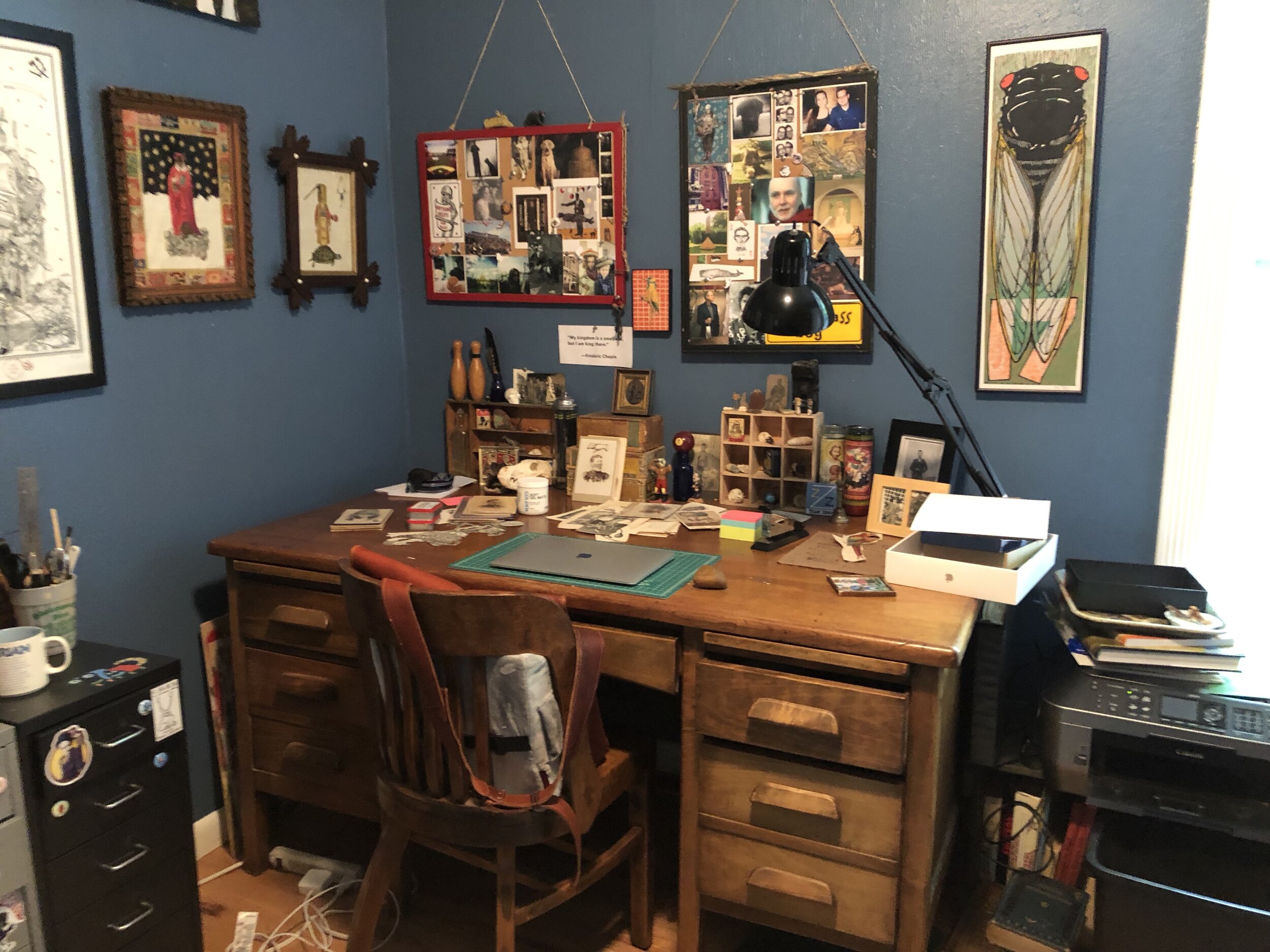
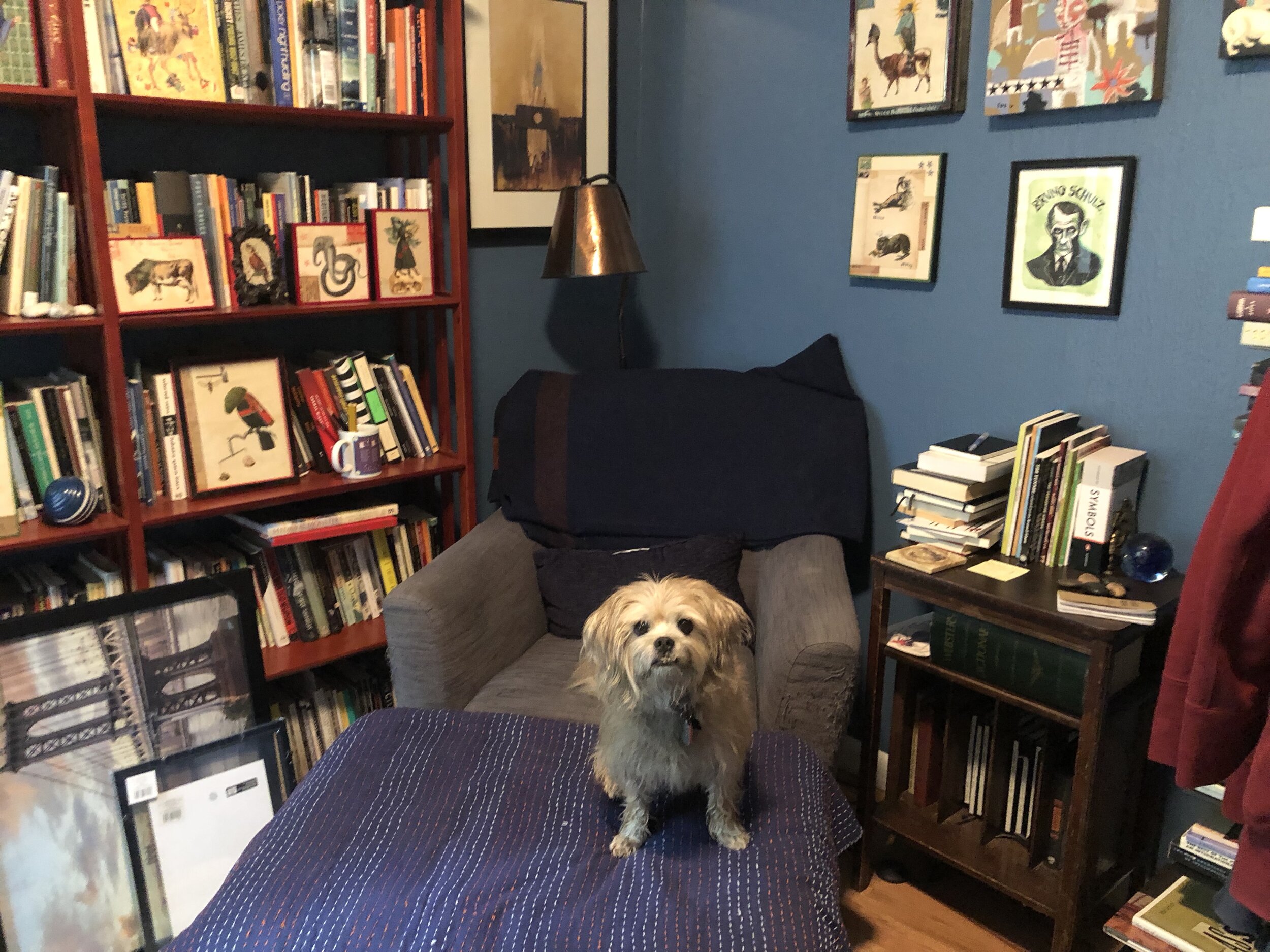
For this ongoing author interview series, I'm asking for everyone to present a writing prompt. It can be as abstract or as concrete as you choose.
Invisible Cities Prose Poem and/or World Building Exercise
Check out Italo Calvino’s wonderful book, Invisible Cities. (Incidentally, this book is marketed as fiction, but Calvino called the pieces in it prose poems). I’d suggest buying a copy of this book or checking it out from the library; it’s one of my favorites. But you can also read some excerpts here.
Now, take a stack of index cards and write one abstraction or vague noun on each, such as cleanliness, no time, gossip, boredom, forgetfulness, shadows, whispers, no music, strangers, constant darkness, etc.
Draw a card, or if you’re a teacher, have your students draw a card. Whatever card you get is your city—The City of Gossip, The City of No Time, The City of Boredom, etc.
Write a profile of your invisible city for someone who has never traveled there. Here are some questions that you might consider in describing your city. Think about how each one might reflect the main quality of your city. For example, if your city is the City of Laughter, the citizens may walk the streets bent over in laughter, clutching their sides with tears streaming from their eyes. Here are some questions that you might consider, but don’t feel limited to these. Let your imagination go!
1.) Describe the inhabitants of your city. What do they look like? How do they dress? How do they interact? What do they keep as pets? Etc.
2.) What are the structures like in your city? What are they made of? What is their shape and size? Etc.
3.) What are the sights, sounds, and smells of a typical street in your city?
4.) What are the major modes of transport?
5.) What is the government like?
6.) Describe the business life of your city. What is the major commerce? What do the citizens use for money?
7.) What is the climate like in your city?
8.) Is there a religion that dominates in your city? What is it called? Describe its beliefs and rituals.
9.) What are some major ways that inhabitants of your city entertain themselves?
10.) What are some problems that your city faces?
Once you have gone through this freewriting exercise, try to whittle what you have down to a prose poem of 200-300 words, or expand what you have into a short story.
In closing, do you have any advice for writers trying to grow and/or make that leap into publication? Or rather, what's something you would have liked to have known when you first started taking your writing seriously?
Allow yourself your failures. Even when we fail, we’re learning something about writing the next successful poem. Also, take the work and poems seriously, but don’t take yourself too seriously.












